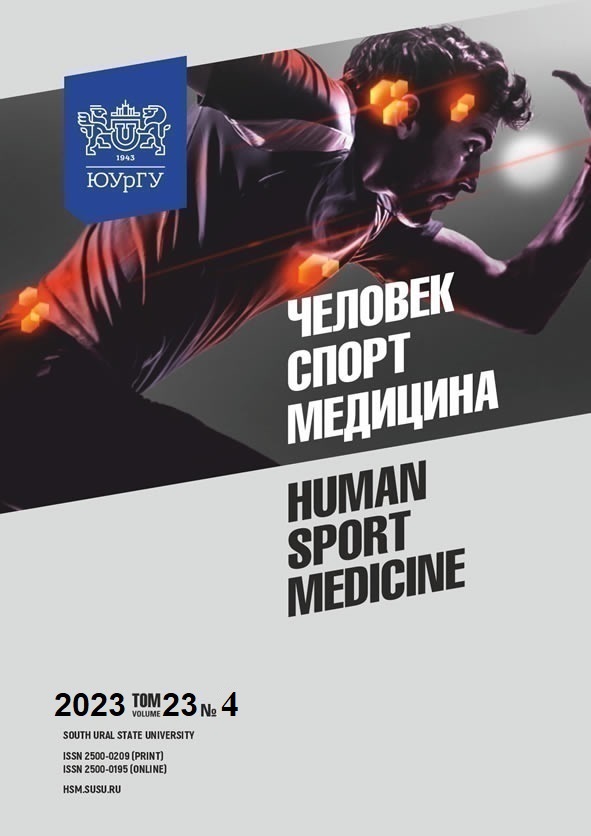PSYCHOPHYSIOLOGICAL STATE AND NERVOUS PROCESSES IN WINTER SWIMMERS DURING A 555 km RELAY SWIMMING
Abstract
Aim: to identify changes in the psychophysiological state and strength of nervous processes in winter swimmers during a long-distance relay swimming from Novorossiysk to Sevastopol. Materials and methods. Neurodynamic processes were assessed with the tapping test, the psychophysiological ones with the Luscher color test (integral data), and somatotypological characteristics were identified with the Kerdo index. Measurements were performed three times: before, on Days 7 and 9, and on Days 15 and 17 after the beginning of a swimming relay. Results. The tapping test demonstrates a predominance of a weak nervous system. The Kerdo index shows a predominance of the parasympathetic system, followed by a balance between sympathetic and parasympathetic influences at the beginning of a swimming relay and at its further stages, respectively. The Luscher color test demonstrates that before this swimming relay, students were autonomous, independent, and active; in the middle of the swimming relay, they showed inactivity and a tendency toward dependency on other people. By the end of the swimming relay, a balance between heteronomy and autonomy was achieved. Before the swimming relay, a balance of personal characteristics was typical of a controversial and unstable person. By the end of the relay, personal qualities were balanced and formed an integral structure. The balance of the autonomic nervous system showed a predominance of the parasympathetic nervous system and remained unchanged, as well as system performance. By the middle of the relay, stress increased, with a subsequent decrease at the end of the swimming relay. Conclusion. By the end of the swimming relay, a change in the psychophysiological parameters of winter swimmers was recorded against a weak nervous system and involved behavior labeled as motivated.
References
References on translit
Copyright (c) 2024 Human. Sport. Medicine

This work is licensed under a Creative Commons Attribution-NonCommercial-NoDerivatives 4.0 International License.















